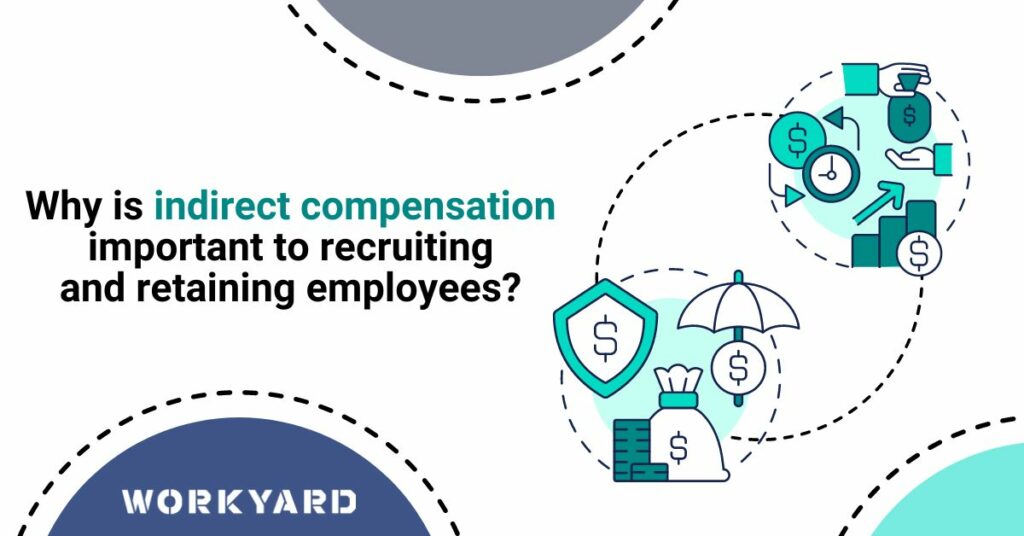This question is about U.S. Labor Laws: What They Are and Workers Compensation Laws.
Why Is Indirect Compensation Important To Recruiting and Retaining Employees?
Indirect compensation, encompassing benefits, perks, and non-monetary incentives, plays a vital role in attracting and retaining top talent in today’s competitive job market.
Employee Satisfaction:
Indirect compensation contributes significantly to overall job satisfaction. Benefits such as health insurance, retirement plans, and paid time off are highly valued by employees, enhancing their overall well-being and morale.
Work-Life Balance:
Offering perks like flexible work schedules, remote work options, and wellness programs promotes a healthy work-life balance. Employees increasingly prioritize flexibility and wellness, making these indirect benefits crucial for recruitment and retention efforts.
Competitive Advantage:
Employers offering robust indirect compensation packages gain a competitive edge in attracting top talent. In a market where skilled professionals have numerous job opportunities, attractive benefits and perks can make a significant difference in recruitment success.
Retention and Loyalty:
Indirect compensation fosters employee loyalty and reduces turnover rates. Employees who feel valued and supported by their employers through benefits and perks are more likely to stay with the company long-term, reducing recruitment costs and maintaining continuity in the workforce.
Enhanced Recruitment Efforts:
Indirect compensation enhances recruitment efforts by showcasing the employer’s commitment to employee well-being and professional development. A comprehensive benefits package and appealing perks serve as powerful recruitment tools, attracting candidates who align with the company culture and values.
Employee Engagement and Productivity:
When employees feel appreciated and supported through indirect compensation, they are more engaged and productive in their roles. Access to benefits and perks motivates employees to perform at their best, driving overall organizational success.
In conclusion, indirect compensation is essential for recruiting and retaining employees in today’s dynamic workforce. By offering attractive benefits, perks, and incentives, employers can create a positive work environment, foster employee satisfaction and loyalty, and gain a competitive advantage in the market.

References
- 1
Source (Upwork). “Why is indirect compensation important to recruiting and retaining employees?” Accessed on March 13, 2024.